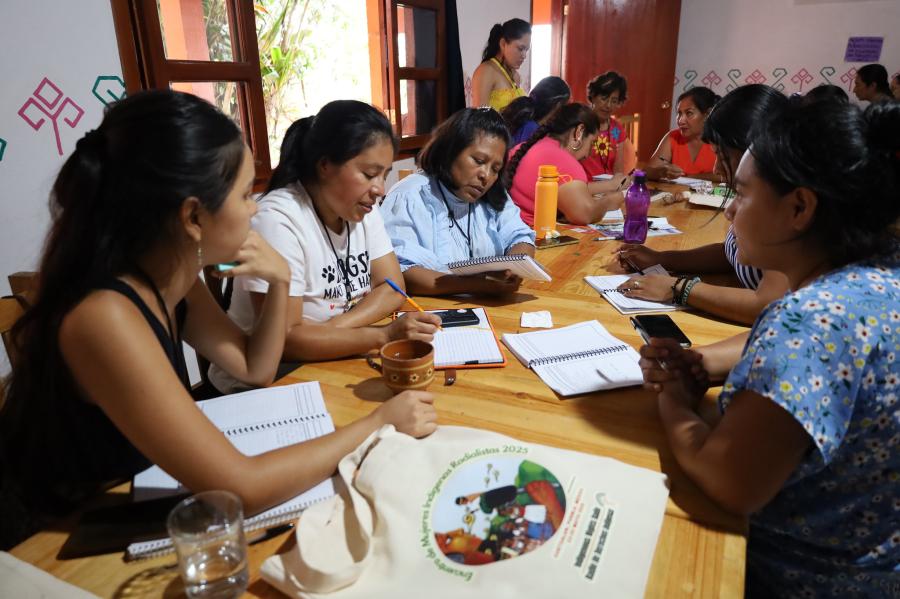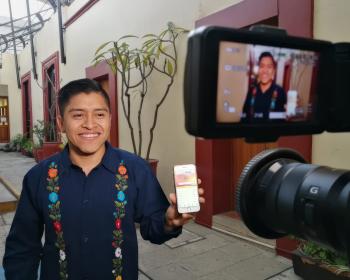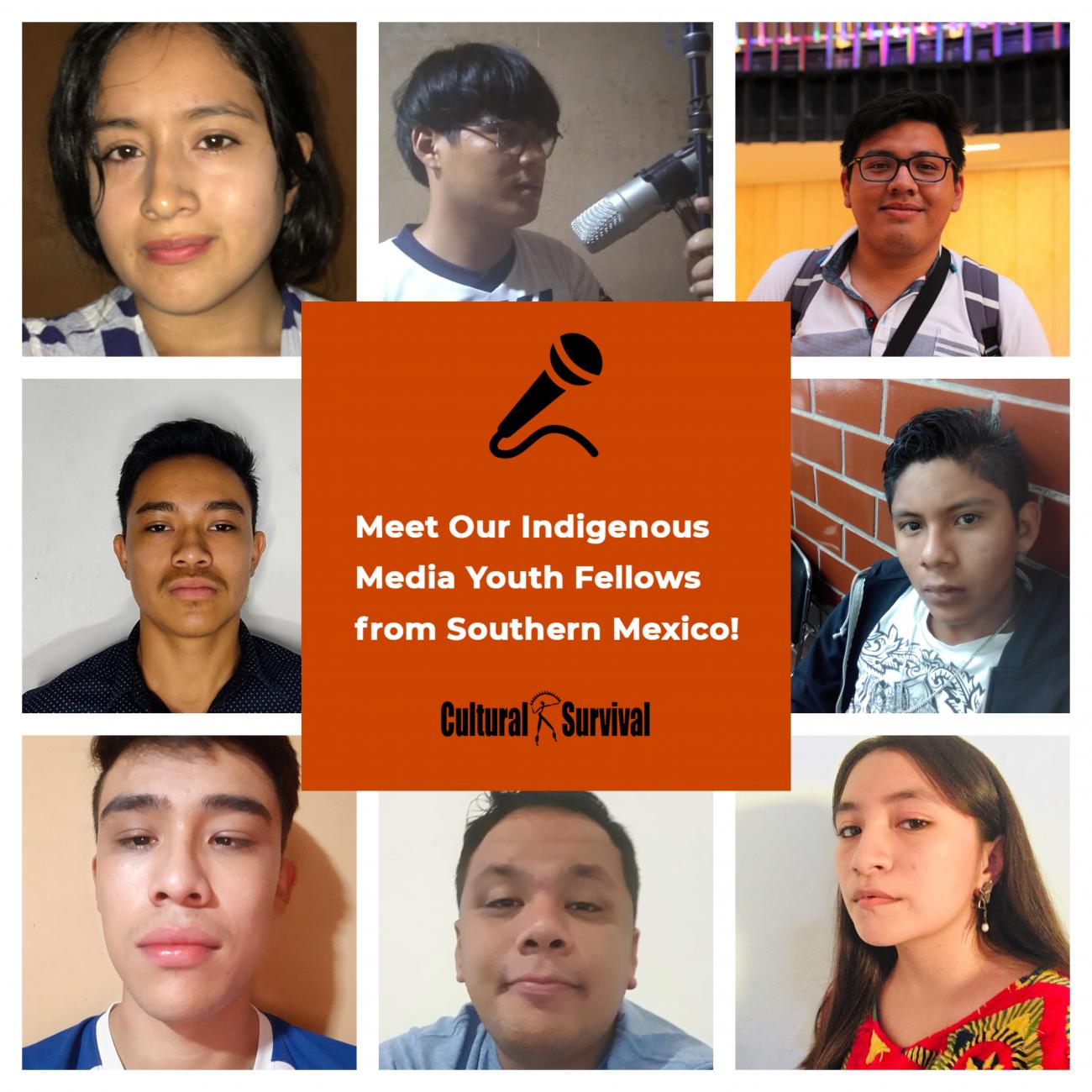
Cultural Survival is pleased to announce our Indigenous youth communicator fellowships in southern Mexico as part of the Indigenous Community Media Youth Fellowship Program. Cultural Survival’s Fellowship Program supports young Indigenous leaders who are eager to learn about technology, program development, journalism, community radio, media, and Indigenous Peoples’ rights advocacy. The Fellowship Program has awarded grants to 39 youth to date. This fellowship is an opportunity to assist fellows to represent and amplify the voices of their communities and bring awareness of local issues to global conversations through their proposed projects, all the while strengthening their cultural identities and leadership.
This second cohort of the 2021 Fellowship will support six youth proposals of alternative and community communication from collectives or individuals between the ages of 14 - 25 from southern Mexico. Meet our fellows!
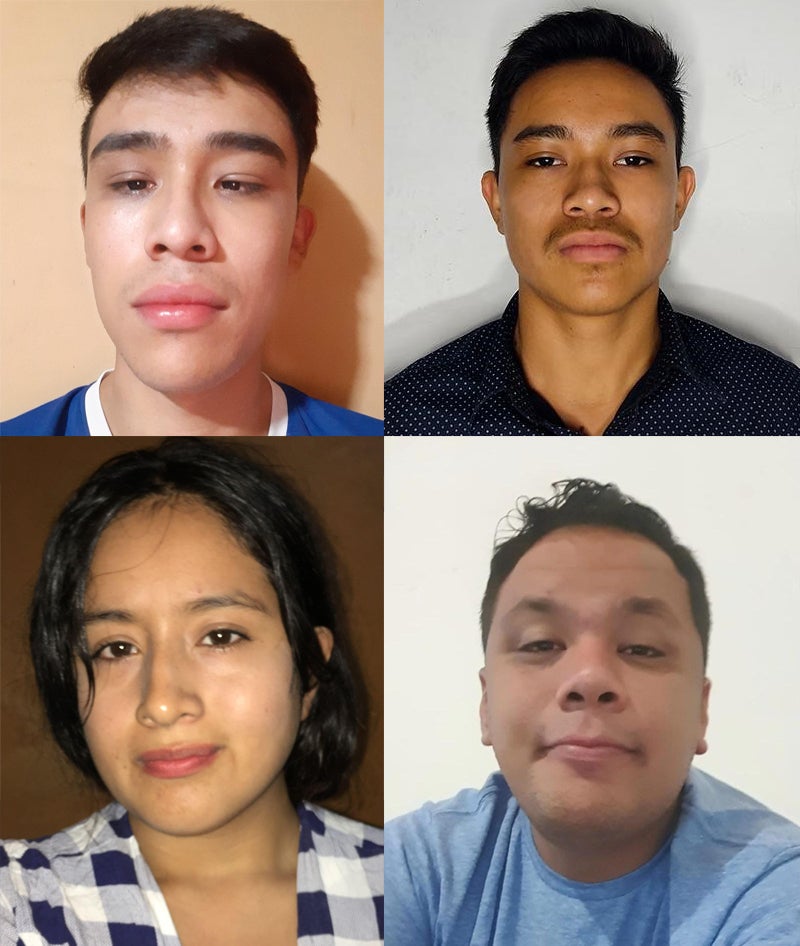
Dice Shna Youth (Zapoteco) from Mexico
Four Zapotec youth from the communities of Santa Gertrudis Zimatlan Oaxaca and Cuilapan de Guerrero will work on a language revitalization project "My Language-Says Shna.” Axayacatl Jacob Arellano Ricardez, 19, is in his fourth year of studies for a bachelor's degree in Engineering in Agronomy and Agriculture at the Universidad Bienestar Benito Juárez García. Jacob is an announcer with Radio Ger and coordinator of the project. Kevin Tlacaelel Arellano Ricardez, 15, is currently in high school and is an announcer for the sustainable development radio program at Radio Ger, which promotes traditional ways to coexist with nature and to safeguard the environment. Zayra Ivett Hernandez Palomeque, 20, is also in her fourth year of studies towards a bachelor’s degree in Engineering in Agronomy and Agriculture at the Universidad Bienestar Benito Juárez García and is in charge of production. Axell Salgado Arellano, 24, is an Information Technology Engineer and is part of the project team as an announcer, teaching topics related to human rights.
Their fellowship project addresses the need to revitalize the Zapoteco language on several levels: belonging, communication, Indigenous knowledge, and identity. The project aims to promote the worldview of the Zapoteco Peoples through community media, producing audiovisual and radio content for Radio Ger and social media. The youth will also create software for learning Zapoteco on a cellular device.
José Renán Dzul Casanova (Maya) from Mexico
José Renán Dzul Casanova, 19, is originally from the Maya Nuevo X-can community, Lázaro Cárdenas, Quintana Roo. He is studying Social Communication at the Autonomous University of Yucatán and is fluent in Maya. From the age of four, he began to learn the Mayan language thanks to the teachings of his great-grandfather and grandparents who contributed to enriching his learning. José has been working on language revitalization projects in his community and has witnessed the language gap deepen between young people and elders. In the academic field, he has carried out research to propose solutions in intergenerational knowledge and language transfer. In November 2020, he made a documentary, in coordination with the municipal delegation of Nuevo X-can, about the founding of his community. He says, “I am proud to be Indigenous and would like to contribute to the development of my community and support the revitalization of identity and culture through whatever tools I can.”
His fellowship project, “Tumben Tsikbal,” means a new form of communication in Maya, and aims to strengthen the Mayan language through radio and audiovisual materials. José dreams of founding the first community media outlet in his region to keep the Mayan-speaking community informed. He will conduct three training workshops in the field of journalism, audiovisual, and production for his community.
Naila Paulina Cruz López (Binnizá) from Mexico
Naila Paulina Cruz López, 22, is a poet, multimedia content creator and digital artist from Binnizá de Juchitán de Zaragoza, Oaxaca, Mexico. She is currently pursuing a degree in Communication Sciences at the Benemérita Universidad Autónoma de Puebla. At the age of 15, she began to write short stories and poems later on. For the past five years, she has actively participated in the Meeting of Poets of the Isthmus of Tehuantepec. In 2017, she began recording her writing with a cell phone and experimenting with film clips to create audiovisual content. She learned to use video editing programs and focuses on topics such as the internet, forced disappearance, experiences of adolescents, and collective networks. Her texts have been published in the Latin American poets’ anthology "La flor en que amaneces", Vaho Magazine, and "4 vientos." She is also the creator of an audiovisual laboratory, which houses digital collages on food sovereignty, defense of the territory, and community processes.
Her fellowship project, "Binnizá: Narratives of the South," aims to document community narratives around revitalizing Binizá culture. It will explore the environment with a decolonization lens and focus on concepts, processes, and languages that lead to inhabiting new territories, as well as naming perceptions, contexts, and understandings within the Zapotec language. Digital collage workshops will be the start of these conversations and short films will serve as a narrative practice that is sustained by community spaces. Five short films will be screened in the community, each of them will revolve around specific themes important to local people, such as the disappearance of the Zapotec language, pottery, the resistance of weaving against mass production, and importance of women’s leadership, and spirituality.
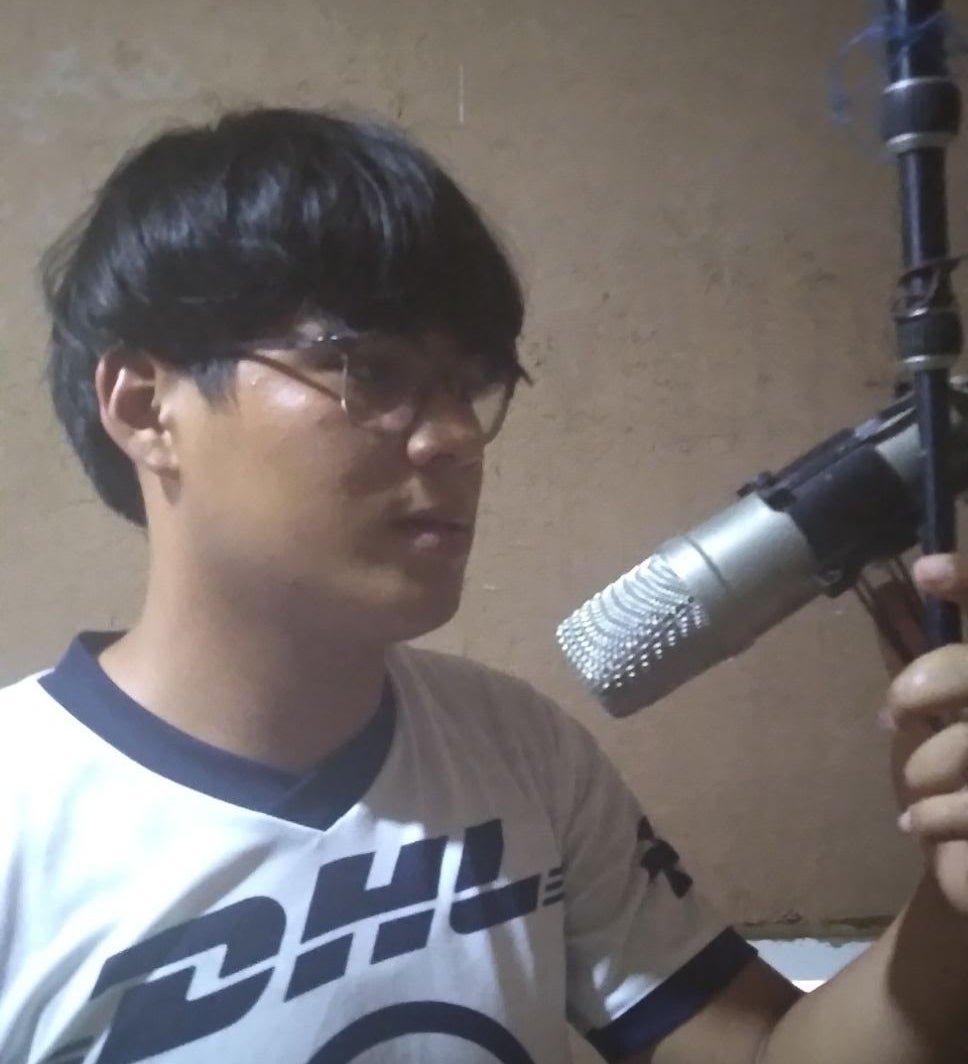
Moroni Matus López (Zapoteco) from Mexico
Moroni Matus López, 21, is from San Francisco Ixhuatán de Oaxaca. In 2014, he entered the José Martí Community High School and joined Ixhuateca Radio where he learned about audio editing. In 2019, he became the radio director of the radio station. During high school and as a member of the Utopia Collective and the radio collective, he participated in a training program for community radio stations in Latin America by Ojo de Agua Comunicación in 2015 and in community radio management in 2016. Moroni has also worked as a counter clerk in a local grocery store, was an assistant at the José Martí Community High School serving students and parents of families and with his family grows corn and sesame. Moroni has learned to love mother earth through his contact with her that feeds him, that is why he is currently studying Communal Agroecology at the Communal University Center of Ixhuatán, a part of the Autonomous Community University of Oaxaca.
The fellowship project, “Communal Fireflies,” seeks to support and uplift community resistance to extractive projects through community radio and audiovisual productions. Fireflies are a metaphor for the sparks of light they emit in the darkness as a symbolism of hope for the people. The project will train 20 youth from 3 Indigenous communities in the use of free media software, about audio and video editing tools, production of radio programs on the impacts of megaprojects, traditional land, and the value of Indigenous knowledge and practices in creating a better communal future. He will produce two short video documentaries on the themes of identity of his community.
Alan Zaid Victoria Orrin (Ikoots) from Mexico
Alan Zaid Victoria Orrin, 20, is from the community of San Mateo del Mar where people speak the Ombeayiüts language. He works in fishing, livestock, and agriculture. His interest in music and dances of the community, led Alan to join an independent cultural group Miküal ajponch nangaj ndek, known as Sacred Waves of the Sea in the Ombeayiüts language. He is studying online at Intercultural High School Education at the Marist University in Mexico City. Alan is also the coordinator of Jowa Community Radio, where he produces programs that strengthen and promote Indigenous culture and traditions.
His fellowship project, “Mipoch Mikambajaats (The Voice of the Community)” seeks to revitalize and promote different at-risk community practices to make the community aware that Indigenous traditions must be kept alive. He will produce eight podcasts in Ombeayiüts and Spanish about flora, fauna, cardinal points, and parts of the body in an effort to strengthen the use of his mother tongue. He will also record six myths, stories, and legends and organize a workshop for children on literary creation.
Fermín Morales Hilario (Nahuatl) from Mexico
Fermín Morales Hilario, 22, is from the community of Kalman Nimos in the mountains where his family grows corn, beans, and squash. His family’s origins are Náhuatl but his mother tongue was not passed down to him as his grandparents did not teach his father and mother to speak. Fermín has five siblings and is the only one in his family to attend university. He aspires to finish his studies. As a student, Fermín started participating at his local community radio station, Radio Chilate, and is deepening his experience by creating musical programs, and editing photos and videos. He wants to perfect his skills and keep learning.
His fellowship project, “Our Traditions, Day of the Dead,” seeks to strengthen the traditions and practice of the Day of Dead among Indigenous communities and teach youth and children about the importance of maintaining these traditions through radio. Fermín will create radio content on the meaning of the festival based on interviews with elders from two different communities. A community dialogue will be organized with elders, youth, and children to strengthen intergenerational knowledge transfer and relationship building. Fermín plans to document these interactions through video and audio recordings. Youth in the community will also take part in workshops on radio productions and editing.
